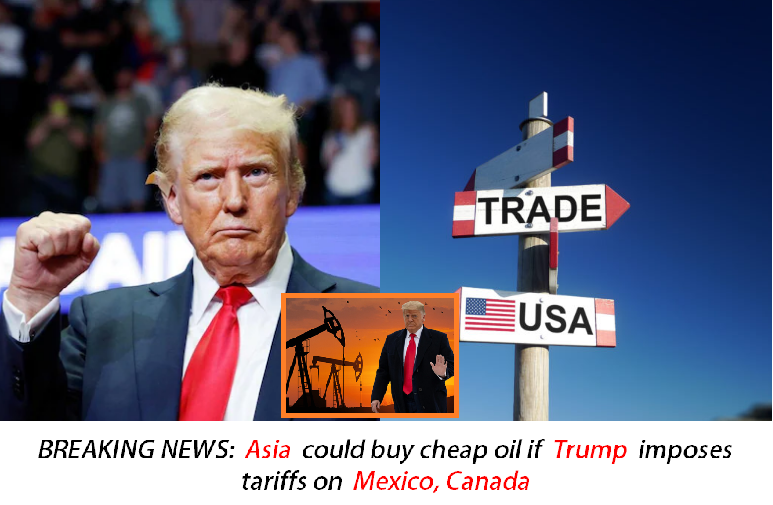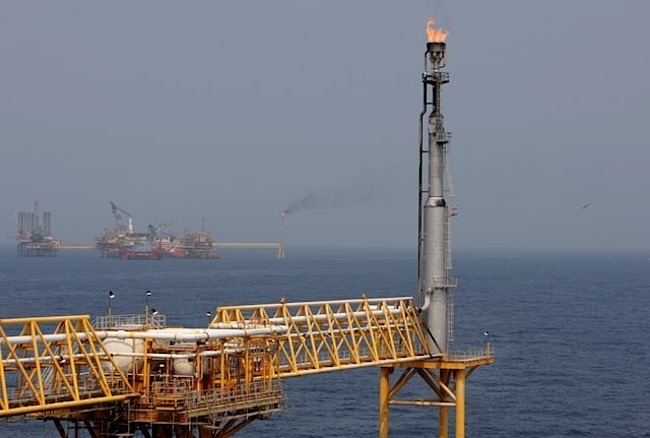Analysts and traders say Canadian and Mexican oil companies could cut prices and shift to Asia if Trump imposes tariffs.

President-elect Donald Trump has vowed to impose a 25% import tax on all goods from Mexico and Canada, and an additional 10% tax on Chinese goods as soon as they take effect. Reuters cited sources familiar with the matter as saying crude oil would not be exempt from the tariffs, although businesses warned the policy could affect consumers, industry and national security.

According to data from the US Energy Information Administration (EIA), Canada and Mexico are currently the two leading exporters of oil to the US, consuming 52% and 11% of the country’s fuel imports, respectively. Data firm Kpler said the US bought 61% of Canada’s seaborne oil exports and 56% from Mexico.
Canada’s oil exports have surged this year, helped by the expansion of the Trans Mountain (TMX) pipeline to increase shipments to the US and Asia.
“If exports are restricted and they cannot divert oil previously destined for the US, Canadian companies will have to cut prices and face revenue risks,” said Daan Struyven, a commodities researcher at Goldman Sachs.
A Mexican oil facility in the Gulf of Campeche. Photo: Reuters
A Mexican oil facility in the Gulf of Campeche. Photo: Reuters
Canada and Mexico mainly export heavy crude refined at plants in the US and most Asian countries. “What will US refiners do? Even Saudi Arabia’s heavy crude supply is secure,” said a trader in Singapore. He said some US refineries only receive fuel via pipeline, leaving them with few import options.
As a result, analysts predict more Canadian and Mexican oil will be diverted to Asia if Trump imposes tariffs. “We expect a lot of fuel to go to China and India, where there are suitable plants for heavy crude,” the analyst at LSEG said.
Canadian companies will have to cut prices further to attract more Asian customers, to cover the cost of shipping the oil over long distances. “Either the country of origin or the refinery will have to pay the import duty,” he said.
TMX pipeline exports to Asia have increased in recent months as Asian refineries, mainly in China, experiment with the new fuel. In contrast, exports from Mexico fell 21% to 860,000 barrels a day.
European refiners are also seen as less likely to dump fuel quickly from Mexico and Canada, said Christopher Haines, an analyst at Energy Aspects. “The import tariffs on Mexico are likely to attract the attention of Spanish refiners, but Asia can easily absorb the fuel not sold to the US, so there is a risk of competition,” he said.
But European refiners typically do not import much from Canada. This year, Mexico’s oil exports to Europe averaged 191,000 barrels a day, with 81% of that going to Spain, according to Kpler data. Canada’s figure is lower, at 85,000 barrels a day.
Still, many traders are skeptical that Mr Trump will actually impose the tariffs, as the policy would result in higher fees for US consumers and refiners. They believe the president-elect is likely to use them as a negotiating tool to achieve some goal.